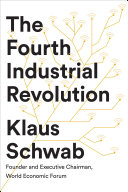

The Fourth Industrial Revolution is a transformative era marked by the fusion of advanced technologies such as artificial intelligence, robotics, the Internet of Things, and biotechnology. This revolution is reshaping in...
Continue readingThe Fourth Industrial Revolution is characterized by the convergence of various technologies including artificial intelligence, robotics, the Internet of Things (IoT), and biotechnology. This convergence leads to unprece...
Continue readingOne of the most pressing concerns associated with the Fourth Industrial Revolution is its impact on labor and employment. Automation and AI technologies are poised to replace many traditional jobs, raising fears of wides...
Continue readingAs technology continues to advance, ethical considerations and governance structures become increasingly important. The Fourth Industrial Revolution raises questions about privacy, data security, and the ethical use of A...
Continue readingThe Fourth Industrial Revolution presents both challenges and opportunities for sustainability. While technological advancements can lead to increased resource consumption and environmental degradation, they also offer s...
Continue readingThe Fourth Industrial Revolution is inherently global, characterized by increased interconnectedness and interdependence among nations. Technology enables businesses to operate on a global scale, facilitating internation...
Continue readingThe Fourth Industrial Revolution is a fertile ground for innovation and entrepreneurship. New technologies create opportunities for startups and entrepreneurs to develop disruptive solutions that challenge traditional in...
Continue readingThe Fourth Industrial Revolution necessitates a rethinking of education and lifelong learning. As industries evolve and new technologies emerge, the skills required for success are changing rapidly. Traditional education...
Continue readingThe reading time for The Fourth Industrial Revolution depends on the reader's pace. However, this concise book summary covers the 7 key ideas from The Fourth Industrial Revolution, allowing you to quickly understand the main concepts, insights, and practical applications in around 25 min.
The Fourth Industrial Revolution is definitely worth reading. The book covers essential topics including Technological Convergence, Impact on Labor and Employment, Ethical Considerations and Governance, providing practical insights and actionable advice. Whether you read the full book or our concise summary, The Fourth Industrial Revolution delivers valuable knowledge that can help you improve your understanding and apply these concepts in your personal or professional life.
The Fourth Industrial Revolution was written by Klaus Schwab.
If you enjoyed The Fourth Industrial Revolution by Klaus Schwab and want to explore similar topics or deepen your understanding, we highly recommend these related book summaries:
These books cover related themes, complementary concepts, and will help you build upon the knowledge gained from The Fourth Industrial Revolution. Each of these summaries provides concise insights that can further enhance your understanding and practical application of the ideas presented in The Fourth Industrial Revolution.